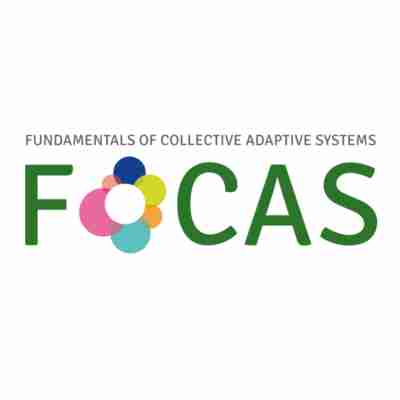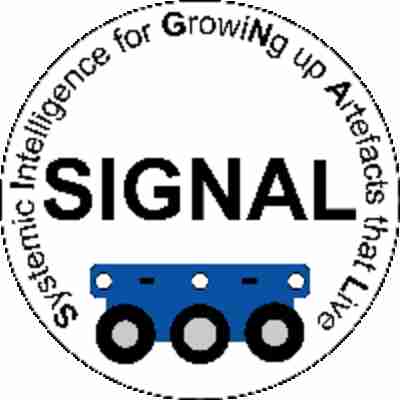Prof Emma Hart E.Hart@napier.ac.uk
Professor
Prof Emma Hart E.Hart@napier.ac.uk
Professor
Swarm robotics refers to the design and coordination of large numbers of simple physical robots. Uses include environmental applications such as pollution monitoring in the oceans using aquatic robots to monitoring deforestation using drones; conducting search and rescue following earthquakes; activities that demand cheap design due to risk of loss such as mining and most recently in the medical domain using nano-scale robots.
Swarms can be envisaged as complex adaptive systems in which global behavior emerges from local interactions via self-organisation. Programming such behavior is challenging given the large-scale and distributed nature of swarms; in addition, self-organisation also needs to be capable of occurring ‘on the fly’ in response to changes in the environment, e.g. due to failure of swarm members, or changes in the operating environment/user requirements. One approach to achieving the required self-organisation is through a novel theory called Guided Self-Organisation (GSO), which is postulated to be applicable of regulating global (system-wide) behaviour - however, no practical version currently exists. This proposal addresses this issue through developing an algorithmic version of GSO that combines self-supervising and unsupervised learning algorithms, and evaluating its effectiveness in achieving user-goals in the face of change in both simulated and physical swarms
| Type of Project | P04 - Research Charities and Trusts |
|---|---|
| Status | Project Complete |
| Funder(s) | Royal Society |
| Value | £11,500.00 |
| Project Dates | Mar 18, 2020 - Mar 17, 2024 |

Life Long Learning Hyper Heuristic Optimisation Oct 1, 2012 - Dec 31, 2015
This project aims to improve the current state of the art in developing optimisation tools which are relevant and acceptable to industry.
This will be achieved by addressing industrial current concerns regarding the ability of academic optimisatio...
Read More about Life Long Learning Hyper Heuristic Optimisation.

FOCAS Jan 1, 2013 - Feb 28, 2016
FOCAS is a coordination action in the area of collective adaptive systems. It provides increased visibility to the research carried out by projects funded by the FOCAS FET Proactive Initiative and others in research fields related to collective adapt...
Read More about FOCAS.
Ensembles for Optimisation Sep 1, 2015 - Aug 31, 2016
Optimisation – finding cost-effective or high-performing solutions - is a key economic driver for business today. However, academic literature on search-based optimisation techniques reflects an escalating arms race to produce highly specialized algo...
Read More about Ensembles for Optimisation.

An Investigation of Hyper-Heuristic Methods: A New Generation of Problems-Solvers Nov 1, 2000 - Jul 31, 2004
The project made significant advances in discovering new automated methods for combining heuristics to solve bin-packing problems, outperforming results obtained by any individual heuristic.
Advances were made using learning classifier systems and...
Read More about An Investigation of Hyper-Heuristic Methods: A New Generation of Problems-Solvers.

SIGNAL Oct 1, 2001 - Dec 31, 2004
This is an EU-funded research project to develop basic methodologies and principles of systemic intelligence for artefacts such as robots that will be capable of steadily growing their knowledge through continued experience. The project involves four...
Read More about SIGNAL.
About Edinburgh Napier Research Repository
Administrator e-mail: repository@napier.ac.uk
This application uses the following open-source libraries:
Apache License Version 2.0 (http://www.apache.org/licenses/)
Apache License Version 2.0 (http://www.apache.org/licenses/)
SIL OFL 1.1 (http://scripts.sil.org/OFL)
MIT License (http://opensource.org/licenses/mit-license.html)
CC BY 3.0 ( http://creativecommons.org/licenses/by/3.0/)
Powered by Worktribe © 2025
Advanced Search